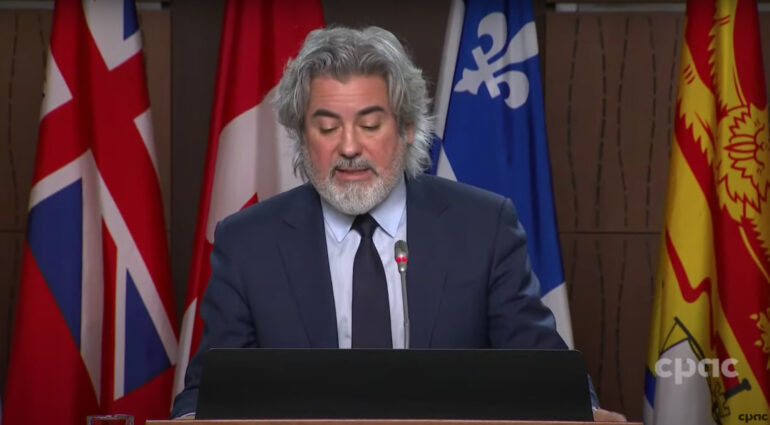Jeff Elgie is worried his online news company, Village Media, won’t see many benefits from the new Online News act introduced by Canadian Heritage Minister Pablo Rodriguez on April 5.
Elgie said, “my main concern, is that if this is going to go ahead, then we’re hoping for transparency.”
Canada’s proposed legislation is based on Australia’s News Media Bargaining Code.
It requires large digital companies such as Facebook and Google to share with media outlets part of their ad revenues generated from the sharing of news content online.
Elgie said he doesn’t see how this could for his company.
“I think that in Australia, some independents were successful with it, but I still think it leaves a lot on the table for small and particular startup companies.”
The legislation will “promote a level playing field between news media and large digital platforms when negotiating fair commercial deals,” according to Canadian Heritage officials.
News outlets would be given the power to negotiate the compensation.

According to the government, independent news outlets can participate as long as they’re considered eligible.
Elgie said this doesn’t seem fair nor transparent.
“I still think it does significantly favour larger legacy players,” said Elgie. “If it’s transparent, and if it’s proportionate to journalism expenditure, then I think that that’s a fair program, versus whatever a large group can negotiate privately with platforms.”
Deb Steel, director of news for Windspeaker.com, an Indigenous news outlet in Alberta, said it’s still early days to be sure of anything.
“There is still much to do and consider and Indigenous publications will no doubt have to organize and work together with others who have more knowledge about the scope of this work for us to be able to really benefit,” said Steel.
The director told Humber News she had participated in one three-hour session to explain how Indigenous news outlets could benefit from the bill.
She said the outlets all have different experiences, structures and needs.
“We do different things. So, we need to work through what this is all going to mean to each of us before we come together,” said Steele.
Much like Elgie, the main concern is the negotiation part.
“Many Indigenous news producers, like ours, are very small with a few people wearing many hats already, and now we have to have the ability to negotiate with major online players? Which of us will have a fully skilled person on staff to provide that ability? And who are we negotiating with?” said Steele.
Heritage Minister Pablo Rodriguez in the bill announced that the news sector in Canada is in crisis and they “want to make sure that news outlets and journalists receive fair compensation for their work, we want to make sure that local, independent news thrives in our country.”
But Matthew DiMera Toronto-based founder of The Resolve said the bill was created to help Canada’s larger private media outlets.
“This legislation was created to benefit and to address the very specific concerns of a very specific part of the journalism industry and not independent journalism, I think if there is any benefit to us, it’s going to be sort of accidental”.
DiMera said the best way to actually support independent media is doing initiatives that are created specifically to support them.
“There are great journalists everywhere,” said DiMera. “They do all parts of the political spectrum, they do all kinds of different work, I just think that if we could find better ways to support that work, that is where the investments need to happen.”
Lela Savic, the founding editor of La Converse in Montreal, agrees with DiMera.
“Right now, it seems like every single program that’s drafted to help journalism is only done to benefit big media,” said Savic. “It is not taken into consideration, smaller media, independent media, BIPOC media, which do have a real impact and innovative impacts in journalism.”
Savic said big tech companies and the government should be more connected to independent media and try to yee the value of their work.
“Youth are reaching out to us professors, schools, we’re doing important work, you know, that is valued in the ecosystem, but that is not given the same amount of love,” said Savic.

